":["BMW raises prices but does not lower them, making it difficult for independent brands to maintain value: Is the used car market about to turn upside down?
![]() 08/06 2024
08/06 2024
![]() 539
539
On August 1, the China Automobile Dealers Association and Jingzhen Valuation jointly released a new report, the "China Automotive Residual Value Research Report for July 2024." This report serves as a valuable reference for those considering purchasing a car, as it helps individuals understand the residual value of different automotive brands. Generally speaking, a high residual value rate for an automotive brand often indicates that their products perform well in terms of quality or reputation.
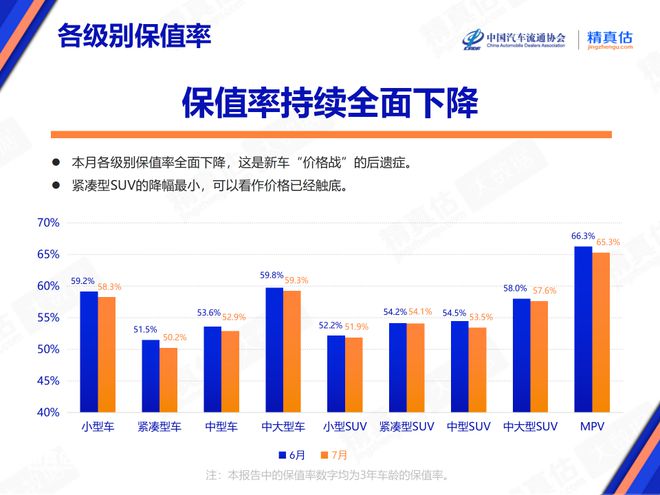
Overall data shows that in July, except for an unexpected increase in the residual value rate of compact cars, the residual value rates of other types of vehicles generally declined, which may reflect a reassessment of compact cars by the market or a weakening demand for luxury sedans. The overall decline in residual values has had a significant impact on used car dealers, with news reports indicating that many have even had to withdraw from the market as a result.
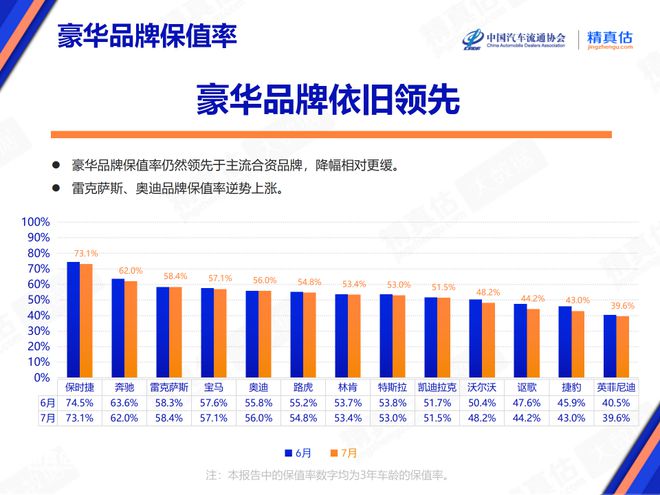
In the luxury segment, despite BMW's recent price increases and delivery delays, its residual value rate in the used car market has only declined slightly. Meanwhile, Audi has managed to increase prices against the trend. The three major luxury brands of BBA (BMW, Mercedes-Benz, Audi) have adopted different pricing strategies, providing a model for other manufacturers to follow. In particular, Audi has been the most proactive, continuously launching new products to meet the demands of the Chinese market.
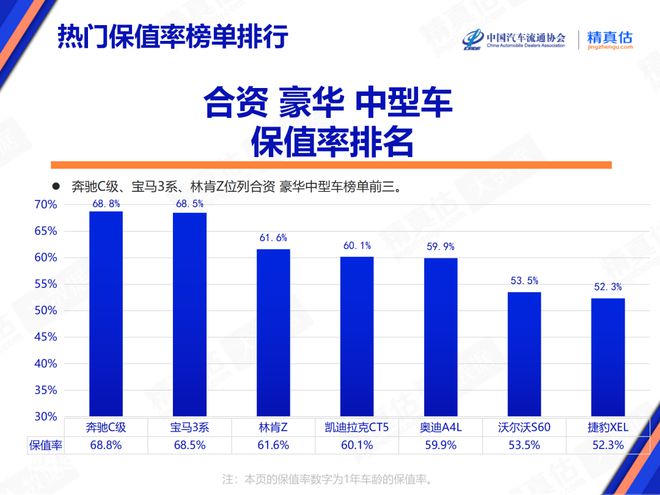
In the ranking of residual values for joint venture luxury mid-size sedans, Mercedes-Benz, BMW, and Lincoln occupy the top three positions. Cadillac, as a popular luxury brand in China, has become another option for many consumers. This American luxury brand has consistently been a leader in its segment in recent years, with annual sales easily exceeding 200,000 units. In this residual value ranking, the CT5 ranks fourth.
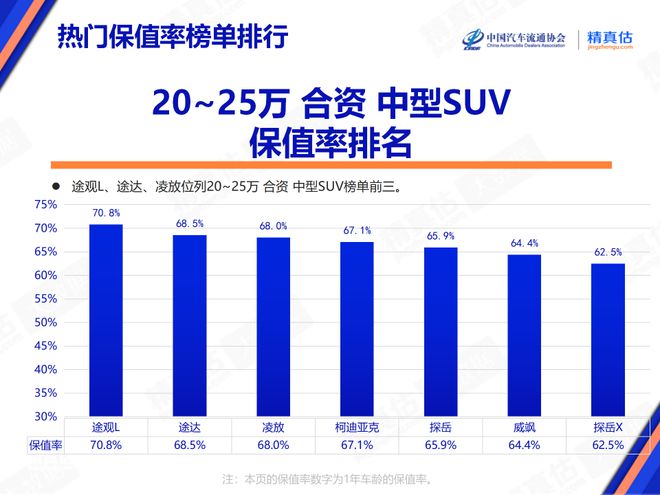
In the ranking of residual values for joint venture mid-size SUVs priced between 200,000 and 250,000 yuan, the Tiguan L has consistently maintained its leading position due to its high sales volume and excellent reputation. Its German driving quality, smooth power delivery, and reliability are the cornerstones of its market position. In this price segment, gasoline-powered SUVs remain the mainstay. The Tiguan L ranks first in terms of residual value.
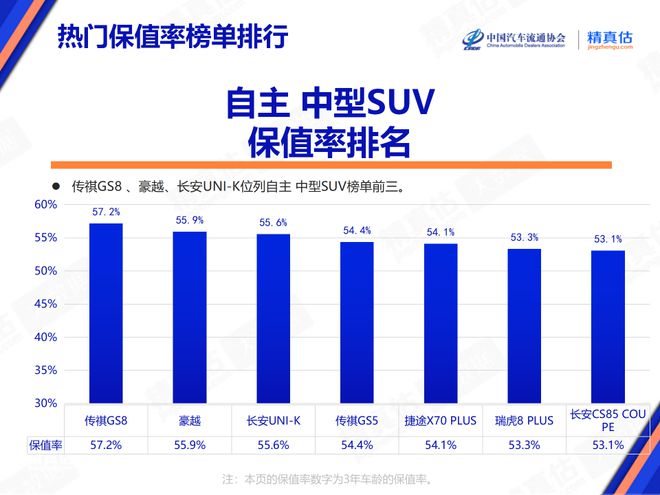
In the ranking of residual values for independent mid-size SUVs, the second-generation GS8 from GAC Motor stands out as a unique presence in its segment since its launch. With strong recognition across product, brand, and technology factors, it ranks first in residual value among its peers.
I think everyone should recognize the fact that in today's family car market, it is difficult to uphold the old arguments about "Japanese cars retaining value" or "gasoline-powered cars retaining more value." As technology updates become more frequent, the residual value of cars will theoretically decrease, which will become the norm. This trend will only accelerate as the market share of new energy vehicles continues to grow. In the past, Japanese cars went years without significant updates or features, making them less prone to breakdowns and thus retaining their value. However, I would like to offer a gentle reminder: only choose to purchase a car when you genuinely have a need for it.
Source: Lei Technology







